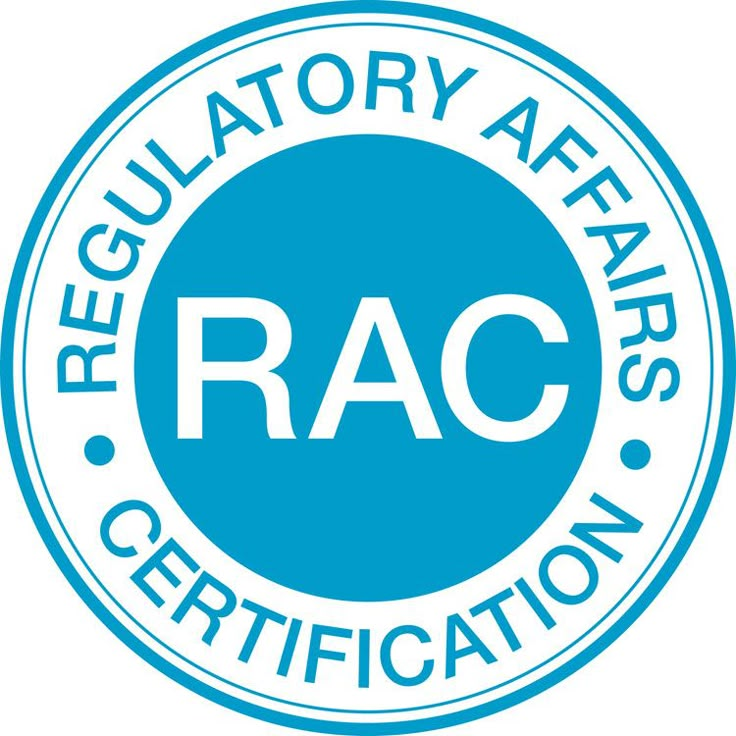10 Surprising Realities That Reveal Why Regulatory Affairs Specialists Are Vital Yet Overlooked Champions of Public Health
Regulatory Affairs Specialist: Behind every approved medicine, medical device, or vaccine, there exists a rigorous process of regulatory scrutiny. At the center of this system stands an unsung professional—the Regulatory Affairs Specialist.
- 📜 History of Regulatory Affairs Specialists
- 🧠 Who is a Regulatory Affairs Specialist?
- 📊 10 Key Facts About Regulatory Affairs Specialists
- 💼 What Does a Regulatory Affairs Specialist Do Daily?
- 🌍 Why Regulatory Affairs Specialists Matter
- ✅ Importance in Daily Life
- 💬 Frequently Asked Questions (FAQs)
- 1. What qualifications are needed to become a Regulatory Affairs Specialist?
- 2. Is Regulatory Affairs the same as Quality Assurance?
- 3. What are the job prospects?
- 4. Is it a stressful job?
- 5. Can I transition into RA from research or clinical roles?
- 🎉 Wishing the Regulatory Warriors
- 🔎 Observance & Recognition
- 💡 Why RA Specialists Are Important to Society
- 📌 Important Highlights to Remember
- ✨ Conclusion: Guardians of Safe Innovation
These individuals ensure that products meet national and international legal standards. They safeguard public health by translating complex scientific data into language that regulatory authorities understand and approve. Despite their critical role, most people don’t know who they are or what they do.
In this article, we’ll explore the history, significance, day-to-day impact, facts, FAQs, and observance of Regulatory Affairs Specialists. Through a human-friendly lens, we’ll show how these professionals are both protectors of safety and enablers of innovation.
📜 History of Regulatory Affairs Specialists
The emergence of Regulatory Affairs (RA) as a profession coincides with the evolution of drug and product safety regulations around the world.
🕰️ Timeline of the Role
1906 – The U.S. Food and Drug Act marks the beginning of regulatory enforcement on food and medicines.
1947 – The Nuremberg Code introduces ethical standards in human experimentation.
1962 – The Kefauver-Harris Amendment to the FDA Act requires drugs to be both safe and effective.
1995 – Formation of ICH (International Council for Harmonisation): RA begins global alignment.
2000s onward – Explosive growth in pharmaceuticals, biotechnology, and medical devices sees Regulatory Affairs become a vital specialized career path in companies across the globe.
🧠 Who is a Regulatory Affairs Specialist?
A Regulatory Affairs Specialist is responsible for ensuring that products—drugs, devices, cosmetics, nutraceuticals, etc.—comply with all legal, safety, and efficacy requirements set by regulatory agencies.
They serve as the bridge between scientific development and government approval, preparing and submitting the necessary documentation to get a product legally approved and marketed.
📊 10 Key Facts About Regulatory Affairs Specialists
RA specialists are involved throughout the product lifecycle—from research to marketing and post-market surveillance.
They work closely with scientists, clinicians, marketers, and legal teams.
Regulatory submissions include dossiers, CTDs (Common Technical Documents), INDs, ANDAs, and NDAs.
Regulatory affairs is recognized globally—with agencies like FDA (USA), EMA (Europe), CDSCO (India), MHRA (UK), and TGA (Australia).
Professionals often pursue certifications like RAC (Regulatory Affairs Certification) to stand out.
RA specialists help ensure ethical marketing of drugs and devices.
They prevent the entry of unsafe or unapproved products into the market.
In the digital era, RA professionals are also involved in eCTD submissions and software regulation.
During emergencies like COVID-19, regulatory experts enabled fast-track approvals without compromising safety.
RA is one of the fastest-growing pharmaceutical careers with international scope.
💼 What Does a Regulatory Affairs Specialist Do Daily?
The day-to-day tasks are highly analytical, detail-oriented, and require excellent communication skills:
Prepare documentation for regulatory submission (IND, NDA, ANDA, MAAs).
Stay updated on regulatory changes and guidelines.
Ensure company practices are GMP, GCP, and GLP compliant.
Review scientific data and package it into regulator-friendly formats.
Respond to queries and observations from agencies like FDA or CDSCO.
Coordinate approvals for clinical trials, new drugs, or labeling updates.
Help design labels, packaging, and promotional materials for compliance.
🌍 Why Regulatory Affairs Specialists Matter
In Industry:
They speed up product launches by ensuring everything is ready for approval.
They prevent legal penalties due to non-compliance.
RA enables global expansion by navigating international regulations.
In Healthcare:
Help bring life-saving innovations to market without delay.
Ensure that quality and safety standards are not compromised.
Act as gatekeepers who protect patients from misleading claims.
✅ Importance in Daily Life
Even if you don’t know it, your safety often depends on a Regulatory Affairs Specialist:
That syrup for your child’s fever? Approved by an RA-reviewed submission.
Your monthly vitamins or protein powder? Reviewed for label compliance by RA.
Ever noticed the “approved by FDA” or “as per CDSCO”? That’s their work.
During the COVID-19 vaccine rollout, RA professionals worked around the clock for emergency use authorizations.
Their job affects your medicine cabinet, your health, and your trust in the system.
💬 Frequently Asked Questions (FAQs)
1. What qualifications are needed to become a Regulatory Affairs Specialist?
A degree in Pharmacy, Life Sciences, Biotechnology, Chemistry, or Medicine, followed by training or certification in regulatory affairs.
2. Is Regulatory Affairs the same as Quality Assurance?
No. RA deals with compliance and documentation with external agencies, while QA ensures internal compliance with quality systems.
3. What are the job prospects?
RA is a high-demand field globally, especially in pharma, biotech, FMCG, and medical devices. International regulatory knowledge can land jobs abroad.
4. Is it a stressful job?
Yes, due to tight deadlines, critical documentation, and ever-changing regulations. But it’s extremely rewarding, both in pay and impact.
5. Can I transition into RA from research or clinical roles?
Absolutely. Many professionals with experience in clinical trials, pharma manufacturing, or QA successfully shift to RA with the right training.
🎉 Wishing the Regulatory Warriors
“To all Regulatory Affairs Specialists—your diligence and integrity protect millions. You are the silent sentinels of science and health. Thank you!”
Celebrate RA professionals on:
World Health Day (April 7)
Drug Safety Awareness Week
Corporate recognition weeks in pharma companies
Encourage:
Awareness seminars
Career spotlight events
Public outreach to explain RA’s importance
🔎 Observance & Recognition
While there is no globally designated Regulatory Affairs Day, professionals are acknowledged during:
Clinical Research Week
National Pharmacy Week
Global Health Days, especially when new products are launched
It’s high time we create a special recognition day for these crucial contributors.
💡 Why RA Specialists Are Important to Society
Regulatory Affairs Specialists ensure that:
Dangerous or ineffective drugs don’t reach the public.
New, innovative therapies are not delayed unnecessarily.
Companies follow ethical and legal practices.
Public trust in healthcare remains intact.
In a world of misinformation, they uphold truth, safety, and ethics in how medicines and devices are presented to the world.
📌 Important Highlights to Remember
RA specialists sit at the intersection of science, law, and ethics.
They translate science into safety for the public.
Every life-saving product needs their stamp before hitting the market.
They offer global career opportunities with ever-growing demand.
Their work ensures compliance, credibility, and confidence in medical innovation.
✨ Conclusion: Guardians of Safe Innovation
We often credit scientists for discoveries, doctors for treatments, and companies for innovation. But somewhere in that chain lies a Regulatory Affairs Specialist—silently ensuring that science meets compliance, that healing meets the law, and that no corner is cut on the path to public trust.
Their job is not glamorous. But it is necessary, noble, and profoundly impactful.
✅ Final Thought:
“Without Regulatory Affairs Specialists, even the best medicine would remain just an idea. They turn scientific brilliance into trusted healing.”









Надёжный заказ авто заказать авто из владивостока с аукционов: качественные автомобили, проверенные продавцы, полная сопровождение сделки. Подбор, доставка, оформление — всё под ключ. Экономия до 30% по сравнению с покупкой в РФ.
I do agree with all of the ideas you have offered to your post.
They are very convincing and can definitely work.
Nonetheless, the posts are very quick for newbies.
May you please extend them a bit from subsequent time?
Thanks for the post.
Вау, сайт anime — очень информативный.
http://www.town-navi.com/town/area/kanagawa/hiratsuka/search/rank.cgi?id=32&mode=link&url=http%3A%2F%2Fe-HP.Info%2Fmitsuike%2F4-bbs%2Fbbs%2Fm-123y.cgi%3Fid%3D1%26post%3D1%26amp%26comment%3D000587